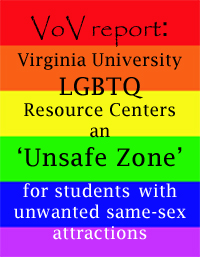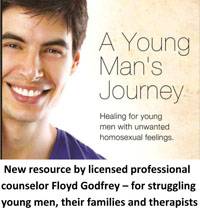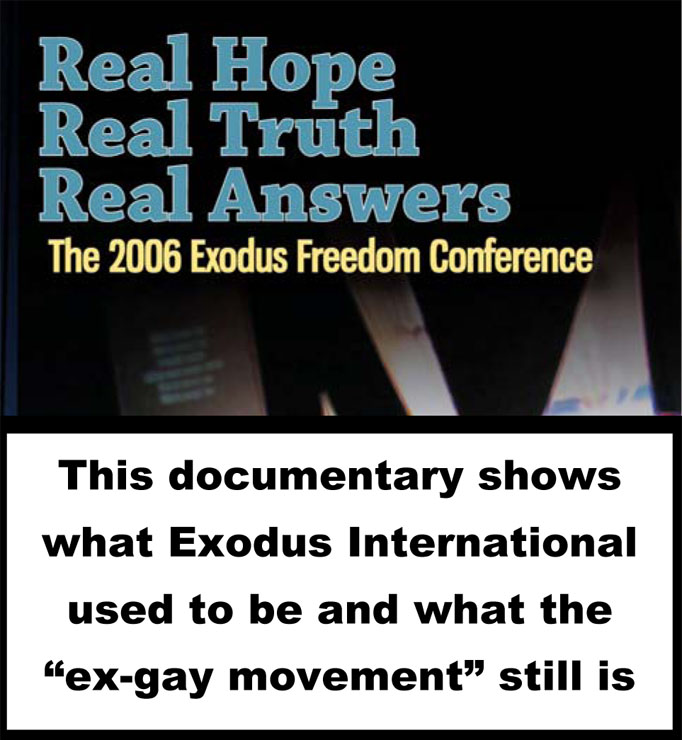Andrew Comisky refutes the accusation that ex-gay ministries drive at-risk youth to suicide
January 28, 2013
Text from Andrew Comisky’s blog “Courage and Contending Part 5: What We Need” on the http://andrewcomiskey.com website: “A common charge against Desert Stream and other ministries that encourage same-sex strugglers to a life beyond the gay kingdom is that we are driving ‘at-risk’ youth to suicide. Implicit in that view is that some kids are ‘gay’ by nature; the only ‘cure’ they need is freedom from those (like us) who believe otherwise.”
“Any challenge to the ‘gay self’ is seen as dangerous. Now educators, therapists, and social workers, even pastors, go to great lengths to confirm that ‘self’ by supporting alternative communities that support early expressions of ‘gender-bending.’ I recently read of a camp in upstate New York that hosts ‘at risk’ kids and features fashion shows where the kids strut around in drag while their parents and siblings look on confusedly (according to the article).”
“Now a gay camp is superior to bullying and death threats and other abominations. But I think it misses the point. What every kid needs is to feel accepted in his or her skin by same-gender peers. No matter what their inner conflicts/tendencies may be, kids need normal: a chance to be and act like an important part of the whole. A drag show may be fun for a few but at the end of the day it’s a misbegotten attempt at meeting the kid’s need for gender solidarity.”
“As one such ‘at risk’ kid, I recall two very important experiences that gave me hope for my confused masculine self. Caught between pursuing feminine ‘play’ but not wanting to be bullied by tough guys, I pulled back from engaging much at all. Passivity and bad shame clouded my gender self.”
“My older brother had been a bit of a bully himself but had softened due to Christian conversion. He asked me to come out one day and play ball with him. While we threw the ball he encouraged me to keep at it, to not pull back just because I would not make the varsity team. He encouraged me that just being familiar with the game was fun and a good way of engaging with guys.”
“Simple. Helpful. And mediated by a guy I loved who came down to my size and mediated a kind of gender ‘grace’ to me.”
“Another key memory involved a solid and kind camp counselor who took pity on me. Our small group of guys came in last in some wilderness feat and I was assigned the task of cleaning the cafeteria floor in front of everyone as a kind of penance. I was heckled the whole time. This older guy came alongside and helped me, mop in hand, encouraging me throughout the ordeal. I stifled tears, not because of being teased but in gratitude for his kindness.”
“When I was ready to move beyond homosexuality, I recalled these memories as flashes of genuine male goodness. I realized what I needed was that kind of solidarity, and in truth, that’s what I wanted to give other guys, especially those confused like me. We may have wanted gay sex or a drag show but that’s not what we needed.”
“I wonder: do the higher rates of suicide promiscuity, drug and alcohol abuse, and depression in avowed homosexuals stem mostly from supposed ‘homophobes’ like me? Or have we failed to assess the core needs of those prone to ‘gender-bending’? If so, may God give us the courage to offer alternatives to the ‘gay self’ and community. What we need may not be what we want. Let’s make every effort to satisfy the deep needs of the deeply wounded.”




